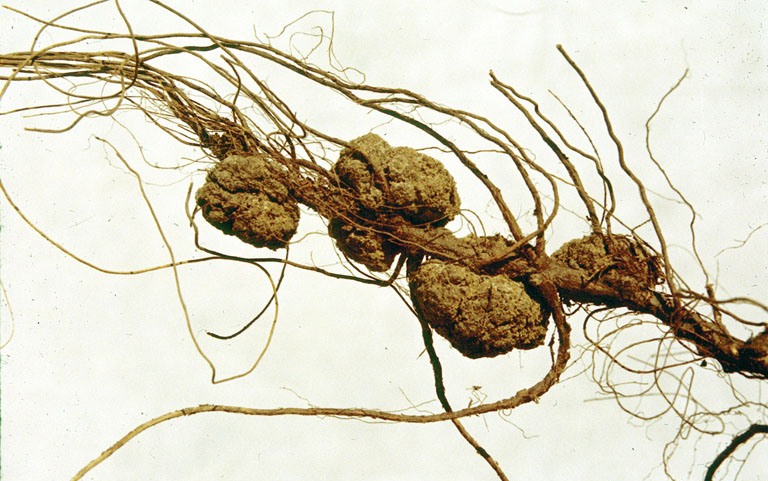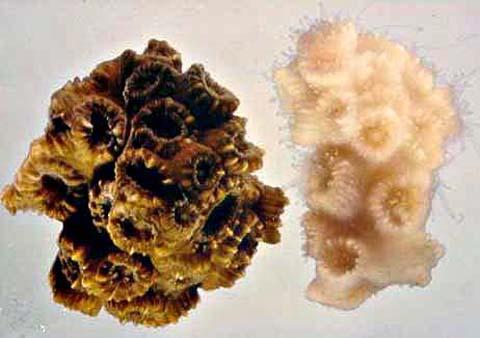|
CAMBIA
Cambia is an Australian-based global non-profit social enterprise focusing on open science, biology, innovation system reform and intellectual property. Its projects include The Lens, formerly known as Patent Lens, and the Biological Innovation for Open Society Initiative. Cambia derives its name from the Spanish verb ''cambiar'', to change. History Cambia was established in 1992 by Richard Anthony Jefferson, a leading molecular biologist responsible for the invention of the GUS reporter system, with substantial early participation by Steven G HughesKate J. Wilson Andrzej Kilian, Chris A. Fields and Sujata Lakhani. Jefferson describes his vision to found a non-profit organisation in ''Innovations'', to provide more efficient and effective tools to solve the problems of agriculture and society. In 1992, Cambia relocated to Canberra, Australia from The Netherlands, to oversee and troubleshoot the Rockefeller Foundation's rice biotechnology network in Asia. During this t ... [...More Info...] [...Related Items...] OR: [Wikipedia] [Google] [Baidu] |
Biological Innovation For Open Society
BiOS (Biological Open Source/Biological Innovation for Open Society) is an international initiative to foster innovation and freedom to operate in the biological sciences. BiOS was officially launched on 10 February 2005 by Cambia, an independent, international non-profit organization dedicated to democratizing innovation. Its intention is to initiate new norms and practices for creating tools for biological innovation, using binding covenants to protect and preserve their usefulness, while allowing diverse business models for the application of these tools. As described by Richard Anthony Jefferson, CEO of Cambia, the Deputy CEO of Cambia, Dr Marie Connett worked extensively with small companies, university offices of technology transfer, attorneys, and multinational corporations to create a platform to share productive and sustainable technology. The parties developed the BiOS Material Transfer Agreement (MTA) and the BiOS license as legal instruments to facilitate these goal ... [...More Info...] [...Related Items...] OR: [Wikipedia] [Google] [Baidu] |
Richard Anthony Jefferson
Richard Anthony Jefferson (born 1956) is an American-born molecular biologist and social entrepreneur who developed the widely used reporter gene system GUS, conducted the world's first biotech crop release, proposed the Hologenome theory of evolution, pioneered Biological Open Source and founded The Lens. He is founder of the social enterprise Cambia and a professor of Biological Innovation at the Queensland University of Technology. In 2003 he was named by Scientific American as one of the world's 50 most influential technologists, and is renowned for his work on making science-enabled innovation more widely accessible. He was profiled in 'Open & Shut: The Basement Interviews', and other major media, including in an Economist Feature 'Grassroots Innovator' in 2001. Education Born in Santa Cruz, California, Jefferson studied at the University of California, Santa Barbara at the College of Creative Studies, and obtained his BA (Molecular Genetics) in 1978. He then moved t ... [...More Info...] [...Related Items...] OR: [Wikipedia] [Google] [Baidu] |
Patent Lens
The Lens, formerly called Patent Lens, is an online patent and scholarly literature search facility, provided by Cambia, an Australia-based non-profit organization. The Lens has been hailed as the “most comprehensive scholarly literature database, that exceeds in its width and depth two leading commercial databases ( Web of Science and Scopus) combined”. The Lens is an agglomeration database, that takes bibliometric data from other databases (such as PubMed and Crossref ) and combines them into one, deduplicated and with unified search syntax. Also, unlike the competing databases, The Lens allows data exporting in JSON format with a superior granularity compared to RIS and CSV formats. Launched in 2000 as the Patent Lens, over the years, thanks to grants from the Rockefeller Foundation in 2000–2004, Bill and Melinda Gates Foundation in 2011, Gordon and Betty Moore Foundation in 2012, The Welcome Trust in 2018, as well as from the Lemelson Foundation it added journal ... [...More Info...] [...Related Items...] OR: [Wikipedia] [Google] [Baidu] |
The Lens
The Lens, formerly called Patent Lens, is an online patent and scholarly literature search facility, provided by Cambia, an Australia-based non-profit organization. The Lens has been hailed as the “most comprehensive scholarly literature database, that exceeds in its width and depth two leading commercial databases ( Web of Science and Scopus) combined”. The Lens is an agglomeration database, that takes bibliometric data from other databases (such as PubMed and Crossref ) and combines them into one, deduplicated and with unified search syntax. Also, unlike the competing databases, The Lens allows data exporting in JSON format with a superior granularity compared to RIS and CSV formats. Launched in 2000 as the Patent Lens, over the years, thanks to grants from the Rockefeller Foundation in 2000–2004, Bill and Melinda Gates Foundation in 2011, Gordon and Betty Moore Foundation in 2012, The Welcome Trust in 2018, as well as from the Lemelson Foundation it added journal ... [...More Info...] [...Related Items...] OR: [Wikipedia] [Google] [Baidu] |
Verb
A verb () is a word (part of speech) that in syntax generally conveys an action (''bring'', ''read'', ''walk'', ''run'', ''learn''), an occurrence (''happen'', ''become''), or a state of being (''be'', ''exist'', ''stand''). In the usual description of English, the basic form, with or without the particle ''to'', is the infinitive. In many languages, verbs are inflected (modified in form) to encode tense, aspect, mood, and voice. A verb may also agree with the person, gender or number of some of its arguments, such as its subject, or object. Verbs have tenses: present, to indicate that an action is being carried out; past, to indicate that an action has been done; future, to indicate that an action will be done. For some examples: * I ''washed'' the car yesterday. * The dog ''ate'' my homework. * John ''studies'' English and French. * Lucy ''enjoys'' listening to music. *Barack Obama ''became'' the President of the United States in 2009. ''(occurrence)'' * Mike Trout ''is ... [...More Info...] [...Related Items...] OR: [Wikipedia] [Google] [Baidu] |
Agrobacterium
''Agrobacterium'' is a genus of Gram-negative bacteria established by H. J. Conn that uses horizontal gene transfer to cause tumors in plants. ''Agrobacterium tumefaciens'' is the most commonly studied species in this genus. ''Agrobacterium'' is well known for its ability to transfer DNA between itself and plants, and for this reason it has become an important tool for genetic engineering. Nomenclatural History Leading up to the 1990s, the genus ''Agrobacterium'' was used as a wastebasket taxon. With the advent of 16S sequencing, many ''Agrobacterium'' species (especially the marine species) were reassigned to genera such as ''Ahrensia'', ''Pseudorhodobacter'', ''Ruegeria'', and ''Stappia''. The remaining ''Agrobacterium'' species were assigned to three biovars: biovar 1 (''Agrobacterium tumefaciens''), biovar 2 (''Agrobacterium rhizogenes''), and biovar 3 (''Agrobacterium vitis''). In the early 2000s, ''Agrobacterium'' was synonymized with the genus ''Rhizobium''. This move pr ... [...More Info...] [...Related Items...] OR: [Wikipedia] [Google] [Baidu] |
Freedom To Operate
Patent infringement is the commission of a prohibited act with respect to a patented invention without permission from the patent holder. Permission may typically be granted in the form of a license. The definition of patent infringement may vary by jurisdiction, but it typically includes using or selling the patented invention. In many countries, a use is required to be ''commercial'' (or to have a ''commercial'' purpose) to constitute patent infringement. The scope of the patented invention or the extent of protection is defined in the claims of the granted patent. In other words, the terms of the claims inform the public of what is not allowed without the permission of the patent holder. Patents are territorial, and infringement is only possible in a country where a patent is in force. For example, if a patent is granted in the United States, then anyone in the United States is prohibited from making, using, selling or importing the patented item, while people in other c ... [...More Info...] [...Related Items...] OR: [Wikipedia] [Google] [Baidu] |
Material Transfer Agreement
A material transfer agreement (MTA) is a contract that governs the transfer of tangible research materials between two organizations when the recipient intends to use it for his or her own research purposes. The MTA defines the rights of the provider and the rights and obligations of the recipient with respect to the materials and any progeny, derivatives, or modifications. Biological materials, such as reagents, cell lines, plasmids, and vectors, are the most frequently transferred materials, but MTAs may also be used for other types of materials, such as chemical compounds, mouse models, and even some types of software. MTA types Three types of MTAs are most common at academic institutions: transfer between academic or research institutions, transfer from academia to industry and transfer from industry to academia. Each calls for different terms and conditions. For simple transfers not involving intellectual property, in the US the National Institutes of Health The Nationa ... [...More Info...] [...Related Items...] OR: [Wikipedia] [Google] [Baidu] |
The Global Journal
''The Global Journal'' was a bimonthly online and printed magazine published by the ''Société des Fondateurs de The Global Journal SA'' concentrating on global governance issues. It was established in June 2010 by Jean-Christophe Nothias. Its newsroom was located in Geneva. ''The Global Journal'' had its largest audience in North America, Europe, and India. The magazine ceased its activity in March 2013 due to insolvency. The magazine published interviews, essays, reviews, articles, and photographs and published a list of the Top 100 NGOs. It named the Wikimedia Foundation as the #1 NGO in the world in 2012 and subsequently published an article about Wikipedia and its founder, Jimmy Wales, in its February 2012 issue. The magazine's "partner" organizations included: the Geneva Academy of International Humanitarian Law and Human Rights, the Fondation Pour Genève, Global Geneva, the Human Rights Foundation, Internations, Poster for Tomorrow, the University of Geneva, and YaleGlob ... [...More Info...] [...Related Items...] OR: [Wikipedia] [Google] [Baidu] |
David Green (social Entrepreneur)
David Green (born March 17, 1956) is an American social entrepreneur. His work has focused on making technology and health care services more accessible and sustainable. Career Green helped Aravind Eye Care System's founder Dr. G. Venkataswamy and his team to establish Aurolab in South India, a nonprofit manufacturer of low cost intraocular lenses for treating cataracts. He also developed suture and surgical blade manufacturing for Aurolab. He is known for developing many eye care programs and for making them self-financing from user fees while serving the lower economic strata. These include: the Aravind Eye Hospital, Madurai, India; the Lumbini Eye Care Project, Nepal; the Tilganga Eye Institute, Nepal; the Grameen Eye Hospitals, Bangladesh; the SadGuru Trust, Chitrakoot, India; the Al Noor Magrabi Eye Hospital, Egypt; and the Visualiza, Guatemala. He co-founded Sound World Solution, a social enterprise to make affordable hearing devices with a novel fitting named Le ... [...More Info...] [...Related Items...] OR: [Wikipedia] [Google] [Baidu] |
Hologenome Theory Of Evolution
The hologenome theory of evolution recasts the individual animal or plant (and other multicellular organisms) as a community or a "holobiont" – the host plus all of its symbiotic microbes. Consequently, the collective genomes of the holobiont form a "hologenome". Holobionts and hologenomes are structural entities that replace misnomers in the context of host-microbiota symbioses such as superorganism (i.e., an integrated social unit composed of conspecifics), organ, and metagenome. Variation in the hologenome may encode phenotypic plasticity of the holobiont and can be subject to evolutionary changes caused by selection and drift, if portions of the hologenome are transmitted between generations with reasonable fidelity. One of the important outcomes of recasting the individual as a holobiont subject to evolutionary forces is that genetic variation in the hologenome can be brought about by changes in the host genome and also by changes in the microbiome, including new acquisitions ... [...More Info...] [...Related Items...] OR: [Wikipedia] [Google] [Baidu] |

